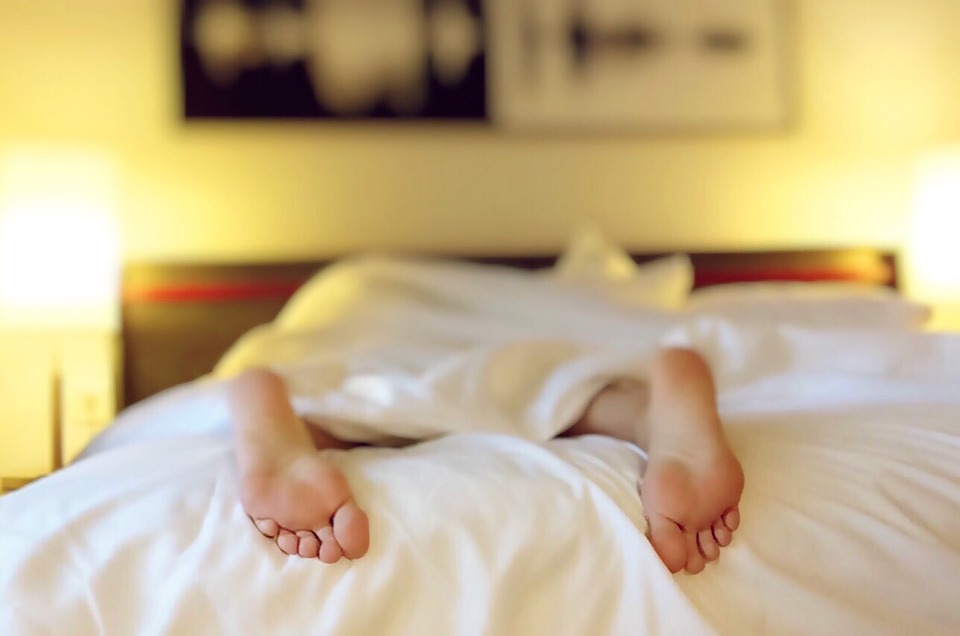Fitness and wellbeing isn't just determined by the one hour training session we may have. It's what we do the other 23 hours of the day when we're not in the gym that counts. One of the most important - and difficult to enforce - lifestyle habits is sleep quality.
The sad fact is, most people see a good night of sleep as a luxury; some even wear their tiredness with a badge of honour, "I was up late last night working, so I only slept a few hours. Nothing some more coffee can't fix!"
Your body has hundreds of different cycles fluctuating in various rhythms. From nervous system shifts that occur with every heartbeat, to daily and monthly hormonal fluctuations, almost everything in your body ebbs and flows. It’s when something becomes fixed in a flat-line pattern that we run into problems.
Healthy sleep results from a robust up and down cycle of various hormones. Ideally, our heart rate, body temperature and cortisol (an energy mobilising hormone which responds to stress) are at their lowest in the second half of our time asleep. Towards morning, cortisol begins to rise rapidly in what is known as the “cortisol awakening response” (CAR), heart rate and body temperature elevate, and our body naturally primes us to wake up and face the day.
This spike in cortisol tapers off throughout the day, assuming you don’t get chased by a lion or yelled at by your boss at home time (both of which will induce a huge stress response). Toward evening, your body ramps up production of a rest-promoting neurotransmitter called adenosine and, triggered by the absence of sunlight, begins producing a hormone known as melatonin, which helps to trigger the sleep cycle.
Though, a good night of sleep - at least 7 hours per night - is a necessity. Sleep improves muscle-growth, speeds up fat loss, and carries loads of health benefits that will help us to look and feel better.
Sleep Tips
1. Chill Time!
For most people, the ideal temperature for sleep is somewhere between 15C – 20C. Experiment to find what feels best for you, but the first sign of good sleep is a chilly bed. If you shiver when you get underneath the sheets, you’re good to go. If you can’t control the temperature of your room, aim a portable fan directly at your bed and avoid sleeping with a heavy duvet.
2. Peace and Quiet.
It’s difficult to drift off to sleep when people are loud and blaring their horns outside your home. Drown out or muffle unwanted noises as best as you can. Use a fan for white noise. Grab some earplugs if it is really noisy. If you live with roommates or family, tell everyone to keep it down.
3. Blackout.
Even a tiny amount of light can interfere with melatonin production and impair your sleep. Turn off all devices and seal all light out of your room. Turn off any electronic devices with LED’s or cover the lights with a small piece of electrical tape. Hang a blanket or towel over your bedroom window if light creeps in.
4. Digital Detox
Radiation emitted from mobile phones can increase the amount of time required to reach deep sleep cycles and decrease the amount of time spent in those cycles. Stop using your mobile phone as an alarm clock. Replace it with a normal battery powered clock and turn your phone off. You’ll get the added benefit of not being distracted by the buzz of an incoming text or email.
5. Reach For The Sun
A good way to improve your sleep quality is to strengthen the initial spike in wakefulness that occurs in the morning. In other words, the more awake you feel in the morning, the more tired you’ll feel in the evening.
The best way to do this is to expose your body to natural sunlight shortly after waking for as little as ten minutes. Sunlight brings the bonus of increased vitamin D production, which is important for overall health. Artificially simulated sunlight can work, too. For example, there are alarm clocks available that emit light gradually in order to prepare your body to wake up. Finally, remember that vitamin D is what your body normally produces in response to sunlight and it's tied into your wakefulness patterns. So if you’re supplementing vitamin D, try taking it in the morning.
6. Stick To Schedule
This one requires some discipline, but it’s worth following it through: Wake up at the same time every day, even on weekends. Your body can’t establish an effective rhythm if you don’t allow it to normalize to a pattern.
If you stay up late, don’t sleep in. Instead, plan on going to bed a little earlier the next night. The sleep you get before midnight will be more valuable than the sleep you get after midnight, so always think in terms of making up for lost sleep by going to bed early the next night rather than sleeping in.
7. Bedtime Reading
Avoid intellectually stimulating books and use this time for easy reading. It will reduce mental chatter and allow you to relax and let go of the day’s preoccupations. Easy reading, by the way, is whatever you normally wouldn’t read. So if you normally read non-fiction, try reading fiction. If you prefer to read fiction, try reading some history.
8. Sleep on a good mattress.
A quality bed is one of the best investments you’ll ever make and it doesn’t have to be ludicrously expensive to work. Whatever you do, don’t put up with a lumpy mattress or an uncomfortable futon. A good mattress is money well-spent. If you’re sleeping on something that’s thin, lumpy, or too small, take a look at your finances and see if you can set aside some money each month to purchase a new mattress. It’s worth it!




